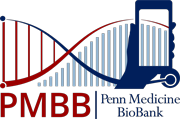FAQ for participants
A biobank is a warehouse that collects, stores, and distributes biological samples from humans to support research studies. These samples, called biospecimens, can include things like tissue, blood, and urine. In addition to the biospecimens, the biobank also collects information about the patient from whom the biospecimen originated. The information could be simple, like age or weight. Or the information could be complex, like medical or medication history. Together, the samples and data in biobanks can be used by researchers to study diseases like cancer, diabetes, and Alzheimer’s. The more samples researchers have to work with, the more accurate and precise their results will be. This research will help to develop new methods to treat and diagnose diseases and maybe even prevent or cure them.
Biospecimens provide a bridge between emerging research findings and patient information. By connecting biospecimens with data, researchers learn more about how disease occurs in people. By identifying patterns in the data, scientists hope to find better strategies to diagnose and treat disease.
Commonly, human biospecimens are used to:
● Figure out which people are more likely to develop certain diseases
● Find out how diseases progress and vary
● Group patients as more or less likely to respond to specific medicines
● Group patients to determine which medicine or treatment is appropriate
● Develop screening tests to better detect and treat disease
Any Penn Medicine patient able to give consent may participate. If you are a Penn Medicine patient, you may be approached at your clinical visit to participate.
Consent for the clinical trial only covers being a part of that research project. Researchers also want to learn more about broad questions, such as why you may have gotten a disease. This consent covers that type of research.
Participation is voluntary. The Penn Medicine BioBank will present a consent form for you to read. You will learn about the risks and benefits of taking part. You may contact us with any questions. If you decide to take part, you need to sign a document to indicate your are willing to participate. We request that you donate a blood sample if possible from your clinical visit. If you are having a procedure, we ask your permission to use the any tissue not needed for your health care.
Scientists will extract DNA from blood and run molecular assays to generate genetic information from the DNA. Other types of assays may also be done to look at cells, proteins, and biomarkers for disease
No. Your genetic information will not be accessible to your employer, insurance provider, or doctor. Your genetic information is protected by a federal law called the Genetic Information Nondiscrimination Act (GINA). GINA protects you from discrimination based on your genetic information. GINA protection covers health insurance companies, group health plans, and most employers. For more information about GINA, you may wish to visit this website: http://ghr.nlm.nih.gov/spotlight/the-genetic-informationnondiscrimination-act-gina.
No. There is no cost to participating in the BioBank.
No. There is no compensation for participating. Your donation is to help future generations.
In general, you will not receive any results from research conducted on your sample. However, if researchers find a result that would affect your clinical care, you might be contacted about results in the future.
Your sample will be stored and used by researchers without a time limit.
You may withdraw your permission to use your sample at any time. If you would like to withdraw, please contact us at (215) 349-5027 or email biobank@upenn.edu.
No. If you take part in the BioBank, you can still participate in other studies or clinical trials. You will be asked to sign a separate consent form for any other research studies.
You may be asked to participate in other studies or clinical trials, based on your participation in the BioBank. Other studies or clinical trials will explain the different benefits and risks before you are enrolled.
The BioBank does NOT share protected health information (such as name, date of birth, address, etc.) outside of the University of Pennsylvania. However, the increasing size of clinical, criminal, and recreational genetic information raises small concerns about protecting your identity. It is impossible for us to completely guarantee your privacy. Genomic privacy is a developing concept that will likely require new laws and regulations over time. You should consider the potential impact before deciding whether to participate.


